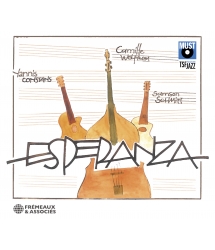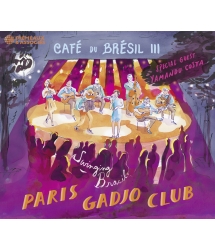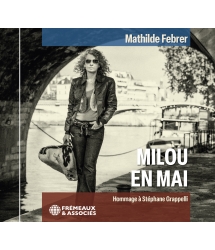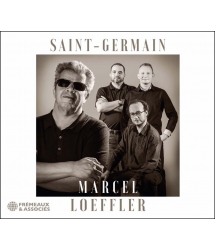- Our Catalog
- Philosophy
- Philosophers of the 20th century and today
- History of Philosophy (PUF)
- Counter-History and Brief Encyclopedia by Michel Onfray
- The philosophical work explained by Luc Ferry
- Ancient thought
- Thinkers of yesterday as seen by the philosophers of today
- Historical philosophical texts interpreted by great actors
- History
- Books (in French)
- Social science
- Historical words
- Audiobooks & Literature
- Our Catalog
- Jazz
- Blues
- Rock - Country - Cajun
- French song
- World music
- Africa
- France
- Québec / Canada
- Hawaï
- West Indies
- Caribbean
- Cuba & Afro-cubain
- Mexico
- South America
- Tango
- Brazil
- Tzigane / Gypsy
- Fado / Portugal
- Flamenco / Spain
- Yiddish / Israel
- China
- Tibet / Nepal
- Asia
- Indian Ocean / Madagascar
- Japan
- Indonesia
- Oceania
- India
- Bangladesh
- USSR / Communist songs
- World music / Miscellaneous
- Classical music
- Composers - Movie Soundtracks
- Sounds of nature
- Our Catalog
- Youth
- Philosophy
- News
- How to order ?
- Receive the catalog
- Manifesto
- Dictionnary











- Our Catalog
- Philosophy
- Philosophers of the 20th century and today
- History of Philosophy (PUF)
- Counter-History and Brief Encyclopedia by Michel Onfray
- The philosophical work explained by Luc Ferry
- Ancient thought
- Thinkers of yesterday as seen by the philosophers of today
- Historical philosophical texts interpreted by great actors
- History
- Books (in French)
- Social science
- Historical words
- Audiobooks & Literature
- Our Catalog
- Jazz
- Blues
- Rock - Country - Cajun
- French song
- World music
- Africa
- France
- Québec / Canada
- Hawaï
- West Indies
- Caribbean
- Cuba & Afro-cubain
- Mexico
- South America
- Tango
- Brazil
- Tzigane / Gypsy
- Fado / Portugal
- Flamenco / Spain
- Yiddish / Israel
- China
- Tibet / Nepal
- Asia
- Indian Ocean / Madagascar
- Japan
- Indonesia
- Oceania
- India
- Bangladesh
- USSR / Communist songs
- World music / Miscellaneous
- Classical music
- Composers - Movie Soundtracks
- Sounds of nature
- Our Catalog
- Youth
- Philosophy
- News
- How to order ?
- Receive the catalog
- Manifesto
- Dictionnary
TCHA LIMBERGER
Ref.: FA8558
EAN : 3448960855822
Artistic Direction : DAVE KELBIE
Label : Frémeaux & Associés
Total duration of the pack : 1 hours
Nbre. CD : 1
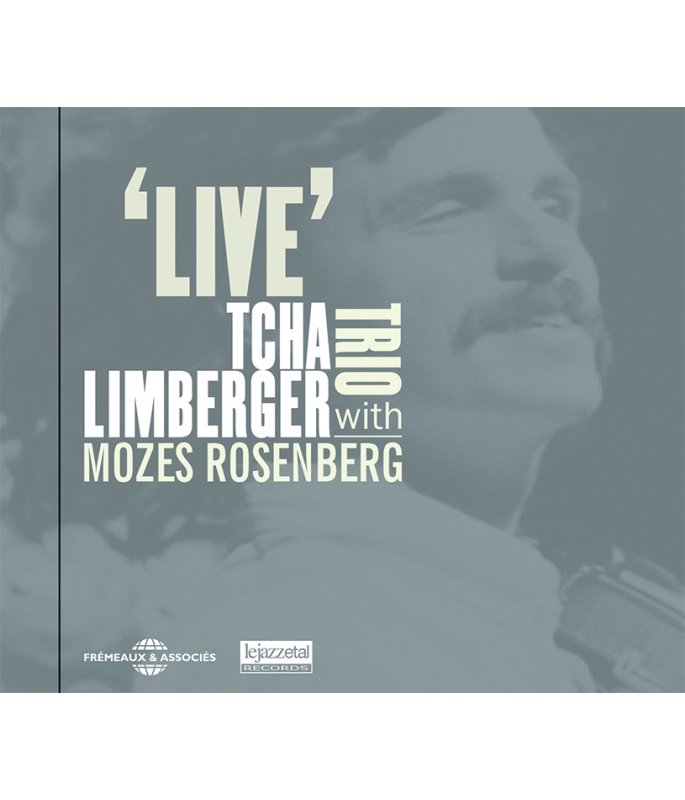
Tcha Limberger is a violinist who can’t be ignored. After recording in World and Traditional genres (Budapest Gypsy Orchestra- FA8524, Trio Tatavla FA8550), here he returns to Swing with special guest Mozes Rosenberg (the young brother of Stochelo.) The album also features an elegant, impeccable rhythm section, both masters of swing and both from the band “Django à la Creole”, namely Dave Kelbie (who also produces, having put this disc together) and Sebastien Girardot. The warmth of this live recording brings out all the talent and generosity shown by Tcha and Mozes through some of the great standards… and when you hear their virtuoso playing, exceptional in this new generation of Gypsy jazz, you have to agree that the album, like Limberger and Rosenberg, just can’t be ignored. Augustin BONDOUX / Patrick FRÉMEAUX
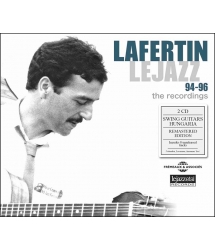
94 - 96 THE RECORDINGS
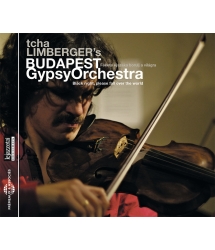
BLACK NIGHT, PLEASE FALL OVER THE WORLD / FEKETE...
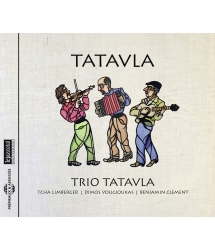
TCHA LIMBERGER
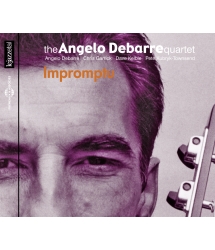




-
PisteTitleMain artistAutorDurationRegistered in
-
1My Blue HeavenTcha Limberger, Mozes RosenbergWalter Donaldson00:04:592015
-
2AvalonTcha Limberger, Mozes RosenbergAl Jolson00:04:252015
-
3Pour que ma vie demeureTcha Limberger, Mozes RosenbergDjango Reinhardt00:05:522015
-
4I Surrender DearTcha Limberger, Mozes RosenbergHarry Barris00:07:272015
-
5MoonglowTcha Limberger, Mozes RosenbergWill Hudson00:06:182015
-
6TopsyTcha Limberger, Mozes RosenbergEddie Durham00:05:452015
-
7FlamingoTcha Limberger, Mozes RosenbergTed Grouya00:05:232015
-
8Someday You'll Be SorryTcha Limberger, Mozes RosenbergLouis Armstrong00:05:272015
-
9Some of These DaysTcha Limberger, Mozes RosenbergShelton Brooks00:05:152015
-
10Clair de luneTcha Limberger, Mozes RosenbergDjango Reinhardt00:03:452015
-
11What Is This Thing Called LoveTcha Limberger, Mozes RosenbergCole Porter00:06:042015
FA8558 Tcha Limberger
Tcha Limberger Trio
with Mozes Rosenberg
‘Live’
1 MY BLUE HEAVEN 4’59. Walter Donaldson
2 AVALON 4’25. Al Jolson
3 POUR QUE MA VIE DEMEURE 5’52. Django Reinhardt
4 I SURRENDER DEAR 7’27. Harry Barris
5 MOONGLOW 6’18. Will Hudson
6 TOPSY 5’45. Eddie Durham
7 FLAMINGO 5’23. Ted Grouya
8 SOMEDAY YOU’LL BE SORRY 5’27. Louis Armstrong
9 SOME OF THESE DAYS 5’15. Shelton Brooks
10 CLAIR DE LUNE 3’45 Django Reinhardt
11 WHAT IS THIS THING CALLED LOVE 6’04. Cole Porter
all arrangements by the quartet
La
petite
histoire
Si le Tcha Limberger trio (Dave Kelbie, guitare, Sébastien Girardot, contrebasse et Tcha Limberger, violon, guitare, chant) a donné quelques concerts en France et en Angleterre ces deux dernières années, ce disque propose un métissage culturel encore plus étonnant que le trio d’origine; il a été enregistré lors de leur premier concert avec le guitariste Manouche hollandais Mozes Rosenberg. Cela parait assez incroyable tant est évidente la complicité de ces musiciens héritiers de cultures musicales distinctes. Le concert fut si incroyablement bon que Dave décida de le publier sur son propre label Lejazzetal.
Tcha
Limberger,
retrospective
galopante
Né à Bruges en 1977 d’une mère flamande et d’un père manouche (Vivi Limberger, guitariste membre du groupe Waso avec Fapy Lafertin et Koon de Cauter dans les années 70), petit fils de Piotto Limberger, grande figure de l’histoire du Swing Manouche en Hollande et en Belgique (1), Tcha baigne dans la musique depuis son plus jeune âge. Malgré ce riche héritage familial (il fut bercé dans son enfance par les disques de Django Reinhardt), il s’est forgé une ouverture d’esprit unique et un amour de toutes les bonnes musiques (jazz, musique classique, flamenco, musiques d’Europe centrale…)
Malgré sa cécité, Tcha apprend la guitare flamenca à l’âge de 6 ans (il passera ensuite à la guitare manouche) et explore tous les instruments ethniques qui lui tombent sous la main, ramenés d’Afrique ou d’Asie par des amis de la famille. Vers l’âge de 10 ans, il apprend la clarinette, puis se passionne pour le violon à l’âge de 17 ans, trouvant un peu triste que tous les jeunes de son entourage familial se tournent vers la guitare. Lors d’un festival de musique Tzigane à Budapest, il y écoute les meilleurs musiciens de Magyar Nota (2) ; il est tellement bouleversé qu’il décide d’apprendre le hongrois et de venir à Budapest pour essayer d’apprivoiser cette musique merveilleuse. Pendant un an et demi il pratique le violon six heures par jour sous le regard du violoniste hongrois Bela Horvath. L’existence du Budapest Gypsy Orchestra (formé par Tcha avec quelques-uns des meilleurs musiciens Hongrois) doit beaucoup à Dave Kelbie qui connait Tcha depuis des années et partage son goût pour la musique Hongroise. Ayant toujours rêvé d’emmener un orchestre de Magyar Nota en Angleterre, Dave invitera Le Budapest Gypsy Orchestra à plusieurs reprises et produira leurs deux premiers disques pour son label, l’un en 2009 enregistré en public, l’autre en 2015.
Depuis des années, de nombreux musiciens font appel à Tcha pour enrichir leurs projets (Dick Van der Harst, Koen de Cauter, Jordi Savall, Fapy Lafertin, Romani, Rino Van Hooijdonk…) tant sur scène que sur disque. S’il y collabore avec plaisir, Tcha est aussi un musicien à part entière qui porte plusieurs projets musicaux, comme Tcha Limberger’s Kalotaszeg Trio, Les Violons de Bruxelles …. ou le Tcha Limberger Trio. Si chaque projet est bien séparé des autres, Tcha ne perd jamais l’âme de la musique dans toutes ses entreprises.
Tcha
Limberger
Trio
Il s’est constitué autour d’une passion commune pour le vieux jazz (tradition New Orleans et Swing). Pour assurer le groove, deux musiciens au CV grand comme le bras s’imposaient naturellement : Dave Kelbie, véritable métronome conjuguant swing léger et beaux accords, très sollicité par les cadors du Swing Manouche (Fapy Lafertin et Angélo Debarre) et Sébastien Girardot, solide contrebassiste au jeu puissant et souple à la fois, très demandé par les meilleures formations de jazz (Michel Pastre 5t et la Section Rythmique) ; bref, une rythmique impériale, assurément l’une des meilleures dans le style, déjà à l’œuvre dans le projet précédent : Django à la Créole. Mozes Rosenberg, le dernier venu, n’est autre que le jeune frère de Stochelo. À 35 ans (dont plus de 20 de métier), c’est l’une des nouvelles stars de la guitare Manouche. Brillant héritier de l’école hollandaise des guitare, Mozes affirme sa propre personnalité, même si l’influence de Stochelo est évidente. Maitrisant tous les aspects de la guitare (arpèges, jeu en accords et en sigle notes), il s’illustre par de longs chorus au phrasé délié et aérien, parfois acrobatiques, toujours remarquablement construits et chantants, ponctués d’accélérations foudroyantes mais qui n’oublient pas la musique en route. S’il envoie fusée sur fusée (cf Some of these days), il sait aussi poétiser avec finesse (cf son exposé magistral sur Flamingo ou son chorus apaisé sur Clair de lune).
Tout ce beau monde se retrouve donc sur des standards qu’ils ont joués dans tous les sens des centaines de fois dans des formations aux couleurs musicales distinctes : old time, jazz classique, New Orleans, Swing Manouche, teinte Tsigane… Ils les portent ici à un haut niveau d’interprétation, y imprimant leur marque et leur classe (What is this thing called love, Avalon, Some of these days, My blue heaven…). Dans ses chorus toujours très personnels et expressifs, Tcha conjugue le sens de l’improvisation et du swing propres au jazzman qu’il est aussi (cf ses interventions sur Avalon ou Topsy) et le lyrisme et le pathos propres au style Hongrois (nostalgie et sentiment) (cf Clair de lune : pur moment de poésie en apesanteur ou le mélancolique Pour que ma vie demure à l’atmosphère recueillie, chef d’œuvre méconnu de Django et pour cause, ce morceau étant un laissé pour compte des sessions radio de 1947, ici dans une version de toute beauté). Sur tempo lent, sa sensibilité explose (cf son exposé sur Moonglow ou ses interventions poétiques sur Flamingo). Fidèle en cela à la démarche des Tsiganes, Tcha crée avec le matériau des autres (ici les standards de jazz) quelque chose qui lui est propre (cf sa version de What is this thing called love), mobilisant avec intelligence l’étendue de son bagage musical dans le jazz qu’il joue. Tcha est aussi un chanteur sensible (cf la version chantée et scattée de I surrender dear ou Someday you’ll be sorry sur lequel il dialogue au chant avec son violon, façon trompette bouchée). Lors de certains concerts il chante aussi quelques chansons en romanès. Bref, ce quartet va incontestablement faire parler de lui.
FRANCIS COUVREUX
Notes
(1) Le frère du charismatique Piotto Limberger est le père de Wasso Grünholz, le secret le mieux gardé des Pays-Bas ; bien qu’il n’ait rien enregistré officiellement, Wasso est peut-être le guitariste le plus important, dans la mesure où son influence fut déterminante pour toute la génération de guitaristes manouches qui allait suivre (Fapy, Stochelo, Jimmy Rosenberg…). Chez les manouches, la musique est toujours une histoire de famille !
(2) Style hongrois urbain né fin XIXème et qui est en train de s’éteindre.
The
Long
Story
Short
Over the last two years, Tcha Limberger’s trio (Dave Kelbie, guitar; Sébastien Girardot, double bass; Tcha Limberger, violin, guitar, and vocals) have performed several concerts in France and in the UK. This recording though provides a cultural melting-pot even more astonishing than the original trio: it is a ‘live’ recording of the first concert with Dutch Gypsy guitarist Mozes Rosenberg. Such complicity between performers, all four heirs to different musical traditions, makes it hard to believe that this was their first time playing together! The show was so incredibly good that Kelbie decided to issue it on his own label, Lejazzetal.
Tcha
Limberger
Tcha was born in Bruges in 1977, from a Flemish mother and a Gypsy father (Vivi Limberger, guitarist with Waso, the band formed by Fapy Lafertin and Koen de Cauter in the 1970’s). His grandfather Piotto Limberger was an important character in Holland and Belgium Gypsy Swing history (1). As early as a baby, Tcha was always surrounded by music. Although he was brought up on Django Reinhardt’s recordings, Tcha remained very open-minded to all kinds of styles, and managed to develop an ecumenical musical culture: jazz, classical, flamenco, Central European melodies…
Despite his blindness Tcha started to learn flamenco guitar at the age of six and later on kept up practicing Gypsy Swing guitar, as well as every ethnic instrument he has the chance to lay his hand on, brought back by family or friends returning from Africa or Asia. In his tenth year, he learned to play the clarinet. A few years later at the age of seventeen, when his friends all chose to play the guitar, Tcha developed a deep passion for the violin and during a Gypsy music festival in Budapest had the chance to hear Magyar Nota’s (2) best performers. This music moved him so deeply that he decided to learn the Hungarian language and to move to Budapest to master this marvelous and singular musical tradition. For a year and a half, six hours a day, he practiced the violin under the supervision of Hungarian famed violinist Bela Horvath. The band Tcha Limberger formed with some of Hungary’s finest Gypsy musicians, The Budapest Gypsy Orchestra, owes a great deal to Dave Kelbie, a long term friend and colleague of Tcha who shares a common taste for Hungarian Music and an ambition to promote a Magyar Nota Orchestra in Britain. He invited The Budapest Gypsy Orchestra on several occasions and produced their first two CDs for the Lejazzetal label (a live recording in 2009, and a studio session in 2015).
Over the years many a musician has asked for Tcha to bring his unique tinge to their musical projects: Dick Van der Harst, Koen de Cauter, Jordi Savall, Fapy Lafertin, Romani, Rino Van Hooijdonk… Whilst he happily performs with his colleagues, Tcha also leads his own bands: The Kalotaszeg trio, Les Violons de Bruxelles, and of course his ‘Tcha Limberger Trio’ to whom you are currently listening… as a quartet!
Tcha
Limberger
Trio
This project originated from a common passion of its members for traditional jazz styles and predominantly New Orleans and Swing. The groove was evidently taken care of by two musicians whose resumes are longer than their arms: Dave Kelbie, a human metronome who combines the softness of genuine swing with enriched chords (regularly invited by masters such as Angelo Debarre and Fapy Lafertin) and Sébastien Girardot, a solid double-bass magician, with both a strong and agile style, highly solicited by famed jazz lineups (Michel Pastre Quintet, La Section Rythmique…). In a word: an Imperial rhythm section, no doubt one of the best of its kind and tied together in the Lejazzetal hall of fame project: Django à la Créole. Mozes Rosenberg, the newcomer to this project is no other than Stochelo Rosenberg’s younger brother. At 35 he already has 20 years’ experience and he is one of Gypsy Swing guitar’s newest gems. A brilliant heir to the Dutch informal ‘Gypsy guitar academy’, Mozes has achieved the development of his own voice despite the obvious connection to Stochelo Rosenberg’s legacy. A master of every modern guitar player’s skills (arpeggio, chord, and single note playing), Mozes illustrates himself with long, floating and sharp choruses, sometimes acrobatic, always remarkably formed and musical. If he occasionally blows proper musical torpedoes (Some of these days), he also knows that poetry lies in gentleness (listen to his masterly musical Flamingo and peaceful chorus in Clair de lune). These fine musicians gather together to perform standards they have played worldwide, hundreds of times, and in all kind of bands: old time music, classical jazz, New Orleans style, Gypsy Swing, Eastern Europe tinge… In this ‘live’ recording they deliver a high level of very personal first-class performances (What is this thing called love, Avalon, Some of these days, My blue heaven…). Tcha delivers uniquely expressive choruses. In pieces such as Avalon and Topsy the tradition of improvisation that jazzmen and Gypsy Swing gladiators highly cherish is combined with the deep lyricism and pathos rooted in the Hungarian musical style. An approach that provides a nostalgic and sentimental mood resulting in moments of genuine weightlessness and poetry (Clair de lune, Flamingo), or meditational and melancholic (Pour que ma vie demeure an obscure 1947 masterpiece by Django). True to the Gypsy tradition Tcha creates a very personal music (What is this thing called love, for instance) while using another culture’s tradition (the jazz standards), where he smartly rallies the skills gleaned from the limitless horizon of his musical legacy. If you add to this list Tcha’s abilities as a singer, and the many languages he speaks (one can hear him sing in Gypsy tongue in many concerts), there is no doubt that this cosmopolitan band will spread his good words!
FRANCIS COUVREUX
Notes
(1) Charismatic Piotto Limberger’s brother is the very father of Wasso Grünholz: Netherland’s best hidden treasure! Although he hasn’t officially recorded anything, Waso might be the country’s most important guitarist, since his influence was decisive on any following guitar players that claim his legacy (Fapy Lafertin, Stochelo Rosenberg, Jimmy Rosenberg…). With Gypsy players, music is always a family business!
(2) Magyar Nota is an urban musical style originated in the late 19th century in Budapest which these days has all but died out.
Tcha Limberger Trio
with Mozes Rosenberg
‘Live’ in Foix
TCHA LIMBERGER - violin/vocals
MOZES ROSENBERG - guitar
DAVE KELBIE - guitar rhythmique
SEBASTIEN GIRARDOT - double bass
A recorded performance for Association Art’riege at Jazz à Foix
jazzfoix.com
Ecole Lucien Goron, Foix, France
Original sound recording by Rosemary
July 23rd, 2015
Filmed and recorded by Rosemary
Produced and Directed by Lionel Escama
Engineered by Luc Fourneau
Mastered by Minerva Pappi at Waudio, Helsinki
waudio.fi
P 2015-2017 Lejazzetal Records, London
© 2019 Groupe Frémeaux Colombini under license from Lejazzetal Records
Produced by Lejazzetal Records
Design & artwork by Dave Kelbie
Assisted by Kathryn at Prestset
prestset.co.uk
Manufactured by Frémeaux & Associés
Photos
PACKAGE
front cover - film still
back cover, cristal Jacques Delrieu
BOOKLET
By Jacques Delrieu:
page 2/3 B&W spread of Tcha Limberger
page 7 Sébastien Girardot
page 10 Dave Kelbie
jackphoto.fr
page 4/5 Mozes Rosenberg & Sébastien Girardot - film still
Sleeve notes by Francis Couvreux
Translation by Benjamin Goldenstein
Many thanks to Lionel Escama, Benjamin Goldenstein, Jacques Delrieu
Management: Lejazzetal London UK
dave.kelbie@gmail.com
tchalimberger.com
lejazzetal.com
fremeaux.com
Contact
Lejazzetal Records London UK Frémeaux & Associés
Dave Kelbie Coordination: Augustin Bondoux
dave.kelbie@gmail.com info@fremeaux.com
for CDs, tour dates and more... full catalogue
www.lejazzetal.com www.fremeaux.com
Tcha Limberger est un violoniste incontournable. Celui qui s’est embarqué sur des terrains monde et trad (Budapest Gypsy’s orchestra-FA8524, trio Tatavla-FA8550), revient au swing en invitant Mozes Rosenberg, jeune frère de Stochelo Rosenberg. Ils sont soutenus par une section rythmique impeccable et élégante, assurée par les maitres du swing, à savoir : Dave Kelbie (également producteur, à l’initiative de cette rencontre) et Sébastien Girardot, issus de « Django à la créole ». Enregistré live, la chaleur de l’enregistrement fait ressortir tout le talent et la générosité des musiciens. Proposant les grands standards interprétés par les plus éminents virtuoses issus de la nouvelle génération du jazz manouche, cet album est simplement et définitivement indispensable.
Augustin BONDOUX / Patrick FRÉMEAUX
Tcha Limberger is a violinist who can’t be ignored. After recording in World and Traditional genres (Budapest Gypsy Orchestra-FA8524, Trio Tatavla-FA8550), here he returns to Swing with special guest Mozes Rosenberg (the young brother of Stochelo.) The album also features an elegant, impeccable rhythm section, both masters of swing and both from the band “Django à la Creole”, namely Dave Kelbie (who also produces, having put this disc together) and Sebastien Girardot. The warmth of this live recording brings out all the talent and generosity shown by Tcha and Mozes through some of the great standards… and when you hear their virtuoso playing, exceptional in this new generation of Gypsy jazz, you have to agree that the album, like Limberger and Rosenberg, just can’t be ignored.
Augustin BONDOUX / Patrick FRÉMEAUX
